- Current Innovative Teaching Fellows
- Upcoming Innovative Teaching Fellows
- Recent Past Innovative Teaching Fellows
Current Innovative Teaching Fellows
Yizhou Huang, Ph.D., Spring 2024 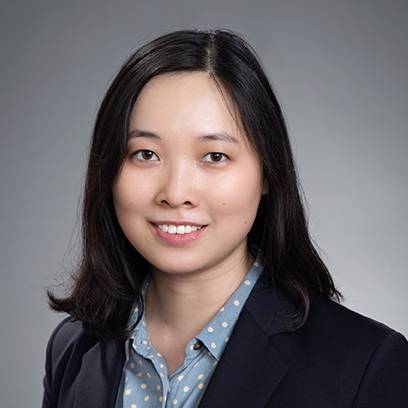
Yizhou Huang is assistant professor of Theatre in the Department of Visual and Performing Arts at Saint Louis University. Her work draws on theatre history and historiography, performance studies, and postcolonialism to examine modern and contemporary Chinese theatre, Asian American theatre, and global Asian performance. She holds a Ph.D. in theatre and performance studies from Tufts University. She received the Helsinki Prize from the International Federation for Theatre Research in 2014 and the New Scholars Prize from the United Kingdom’s Society for Theatre Research in 2020. Her writing can be found in Theatre Survey, Theatre Journal, Asian Theatre Journal, Performance Research, Verge: Studies in Global Asias, among others.
Upcoming Innovative Teaching Fellows
R. Lauren Miller, Ed.D., Fall 2024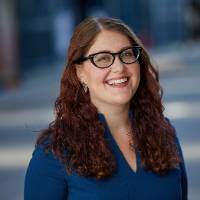
Dr. R. Lauren Miller is an activist, published poet, artist, and mathematician.
Lauren is an assistant professor in the Mathematics and Statistics Department. She is also the faculty coordinator of the college prep program through Saint Louis University’s Prison Education Program. She has over four years of experience working with incarcerated students. She has experience teaching developmental algebra through calculus III, statistics, and mathematics for education majors.
She received her Bachelor's degree in Mathematics from Carthage College in Kenosha, WI in 2015. In 2017 she received her Master's in Mathematics from Saint Louis University. She completed her Ed. D in collaborative high impact instruction from Fontbonne University in May of 2021.
She is currently pursuing a Ph.D. in Education Policy and Equity, from Saint Louis University. Her research and course development focus on math remediation and supporting formally incarcerated and nontraditional students.
She will be using the Innovative Teaching fellowship to redesign Intermediate Algebra to use standards based grading, and culturally reposonsive teaching methods. This course is a prerequisite for all math courses and helps students build a solid math foundation.
Lucy Cashion, M.F.A., Fall 2024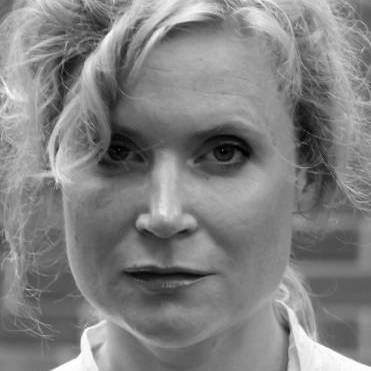
Lucy Cashion (M.F.A. Theatre, Columbia University in the City of New York) is an Associate Professor of Theatre and the Director of the Theatre & Dance Program in the Department of Visual and Performing Arts. At SLU she primarily teaches directing courses and regularly directs plays in the University’s theatrical Season. Professionally, she creates experimental adaptations of canonical works, often collaborating with several groups of people to devise theatrical productions. Her adaptation of Antigone (produced by Equally Represented Arts & SATE; August 2019) was a creative collaboration among SLU Theatre students, Prison Performing Arts participants at the Women’s Eastern Reception, Diagnostic, and Correctional Center, and professional, St. Louis theatre artists. Lucy is the Artistic Director of ERA and a guest director with PPA. Recently with ERA, she produced and directed the album SHE (2021), a radio play by Nancy Bell. Most recently with PPA, she directed Hag-Seed by Stacey Lents, adapted from Margaret Atwood’s novel by the same name, at the Northeastern Correctional Center. She currently directing Saint Joan of Arc for PPA at the W.E.R.D.C.C.
In Spring 2023, Lucy will design the course ‘Collaboration: Arts Incubator’ in the Learning Studio. In this course, students will collaborate to create writings, films, and performances that investigate large questions. These questions could be related to specific topics, such as an historical event, or broader phenomena, such as a fear of death. The course will challenge students to conduct these investigations together and within the parameters of an artistic form. The Learning Studio will facilitate turning the classroom into a laboratory for artistic creation and collaboration.
Recent Past Innovative Teaching Fellows
Sergey Toymentsev, Ph.D., Fall 2023 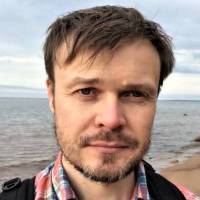
Sergey Toymentsev (Ph.D. in Comparative Literature, Rutgers University) is an Assistant Professor of Russian at Saint Louis University in the Department of Languages, Literatures, and Cultures. He teaches Russian courses at all levels as well as courses on Russian culture, literature, and film. His research interests include contemporary Russian culture, authoritarian regimes in the 21st century, post-totalitarian collective memory, and film-philosophy. His work has been published in Comparative Literature Studies, CLCWeb: Comparative Literature and Culture, New Literary Observer, and Film International, among others. He is the editor of Refocus: The Films of Andrei Tarkovsky (Edinburgh University Press, 2021).
In Fall 2023 he will teach an undergraduate course on Putin's idiocracy. This course will investigate how writers, philosophers, and filmmakers approach the phenomenon of stupidity in Russia and beyond throughout historical periods and how Putin’s regime epitomizes the triumph of stupidity and anti-intellectualism in Russia’s governance, foreign affairs, cultural and media politics. Given the interdisciplinary nature of the course that relies on the findings of political science, sociology, anthropology, philosophy, literary studies, film and media studies, the Learning Studio will provide students with a perfect learning environment to engage with the course’s diverse material.
Matthew Nanes, Ph.D., Spring 2023 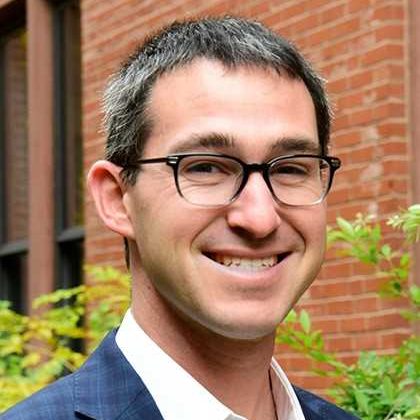
Matthew Nanes (Ph.D. Political Science, University of California San Diego) is an Associate Professor of Political Science at Saint Louis University. He teaches classes on international politics, including Politics of the Middle East and North Africa, and Authoritarian Politics. He also teaches courses on applied research methods. His research focuses on security provision in insecure settings. In his recent book, Policing for Peace: Institutions, Expectations, and Security in Divided Societies, Nanes studies the impacts of minority inclusion in the police in Iraq and Israel on crime prevention and counterinsurgency. He has also conducted research on community policing through a series of experiments with the Philippines National Police.
For his Spring 2023 Learning Studio course, Nanes will revamp the political science research methods course. By breaking down instructional barriers between theory and practice, the course invites students to apply methods skills to real-world problems that interest them. Students will work in collaborative teams throughout the semester to gradually build and execute a research project on a topic of their choice. Along the way, they will build a toolbox of research skills that they can use in their own research or career pursuits.
Heather Bednarek, Ph.D., Spring 2023
Srikanth Gururajan, Ph.D., Spring 2023
Click here to see a full list of all former Innovative Teaching Fellows